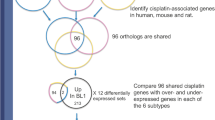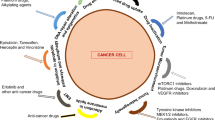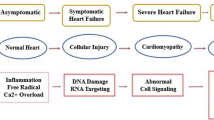Abstract
Pemetrexed is a new generation antifolate approved for the treatment of mesothelioma and non-small cell lung cancer. Caffeine is known to augment radiation or chemotherapeutic drug-induced cell killing. The current study addresses the impact of caffeine on the activity of pemetrexed in mesothelioma cell lines. Caffeine enhanced pemetrexed activity in all four mesothelioma cell lines tested (H2052, H2373, H28 and MSTO-211H). Caffeine sensitized H2052 cells in a dose- and schedule-dependent manner, and was associated with a markedly decreased clonogenic survival. Caffeine sensitization occurred only in cells subjected to pulse, but not continuous, exposure to pemetrexed. Similar pemetrexed sensitization was also observed with the clinically better tolerated caffeine analog, theobromine. Pemetrexed sensitization by caffeine was associated with an increase in pemetrexed-induced phosphorylation of ataxia-telangiectasia-mutated (ATM) and Chk1. These data indicate that caffeine and its analog, theobromine, may be a useful approach to enhance pemetrexed-based chemotherapy.







Similar content being viewed by others
References
Shih C, Chen VJ, Gossett LS, Gates SB, MacKellar WC, Habeck LL, Shackelford KA, Mendelsohn LG, Soose DJ, Patel VF, Andis SL, Bewley JR, Rayl EA, Moroson BA, Beardsley GP, Kohler W, Ratnam M, Schultz RM (1997) LY231514, a pyrrolo[2,3-d]pyrimidine-based antifolate that inhibits multiple folate-requiring enzymes. Cancer Res 57:1116–1123
Zhao R, Zhang S, Hanscom M, Chattopadhyay S, Goldman ID (2005) Loss of reduced folate carrier function and folate depletion result in enhanced pemetrexed inhibition of purine synthesis. Clin Cancer Res 11:1294–1301
Vogelzang NJ, Rusthoven JJ, Symanowski J, Denham C, Kaukel E, Ruffie P, Gatzemeier U, Boyer M, Emri S, Manegold C, Niyikiza C, Paoletti P (2003) Phase III study of pemetrexed in combination with cisplatin versus cisplatin alone in patients with malignant pleural mesothelioma. J Clin Oncol 21:2636–2644
Hanna N, Shepherd FA, Fossella FV, Pereira JR, De Marinis F, Von Pawel J, Gatzemeier U, Tsao TC, Pless M, Muller T, Lim HL, Desch C, Szondy K, Gervais R, Shaharyar, Manegold C, Paul S, Paoletti P, Einhorn L, Bunn PA Jr (2004) Randomized phase III trial of pemetrexed versus docetaxel in patients with non-small-cell lung cancer previously treated with chemotherapy. J Clin Oncol 22:1589–1597
Sarkaria JN, Busby EC, Tibbetts RS, Roos P, Taya Y, Karnitz LM, Abraham RT (1999) Inhibition of ATM and ATR kinase activities by the radiosensitizing agent, caffeine. Cancer Res 59:4375–4382
Hall-Jackson CA, Cross DA, Morrice N, Smythe C (1999) ATR is a caffeine-sensitive, DNA-activated protein kinase with a substrate specificity distinct from DNA-PK. Oncogene 18:6707–6713
Blasina A, Price BD, Turenne GA, McGowan CH (1999) Caffeine inhibits the checkpoint kinase ATM. Curr Biol 9:1135–1138
Zhou BB, Chaturvedi P, Spring K, Scott SP, Johanson RA, Mishra R, Mattern MR, Winkler JD, Khanna KK (2000) Caffeine abolishes the mammalian G(2)/M DNA damage checkpoint by inhibiting ataxia-telangiectasia-mutated kinase activity. J Biol Chem 275:10342–10348
Asaad NA, Zeng ZC, Guan J, Thacker J, Iliakis G (2000) Homologous recombination as a potential target for caffeine radiosensitization in mammalian cells: reduced caffeine radiosensitization in XRCC2 and XRCC3 mutants. Oncogene 19:5788–5800
Wang H, Boecker W, Wang H, Wang X, Guan J, Thompson LH, Nickoloff JA, Iliakis G (2004) Caffeine inhibits homology-directed repair of I-SceI-induced DNA double-strand breaks. Oncogene 23:824–834
Golding SE, Rosenberg E, Khalil A, McEwen A, Holmes M, Neill S, Povirk LF, Valerie K (2004) Double strand break repair by homologous recombination is regulated by cell cycle-independent signaling via ATM in human glioma cells. J Biol Chem 279:15402–15410
Byfield JE, Murnane J, Ward JF, Calabro-Jones P, Lynch M, Kulhanian F (1981) Mice, men, mustard and methylated xanthines: the potential role of caffeine and related drugs in the sensitization of human tumours to alkylating agents. Br J Cancer 43:669–683
Fingert HJ, Chang JD, Pardee AB (1986) Cytotoxic, cell cycle, and chromosomal effects of methylxanthines in human tumor cells treated with alkylating agents. Cancer Res 46:2463–2467
Janss AJ, Levow C, Bernhard EJ, Muschel RJ, McKenna WG, Sutton L, Phillips PC (1998) Caffeine and staurosporine enhance the cytotoxicity of cisplatin and camptothecin in human brain tumor cell lines. Exp Cell Res 243:29–38
Takahashi M, Yanoma S, Yamamoto Y, Rino Y, Amano T, Imada T (1998) Combined effect of CDDP and caffeine against human gastric cell line in vivo. Anticancer Res 18:4399–4401
Boike GM, Petru E, Sevin BU, Averette HE, Chou TC, Penalver M, Donato D, Schiano M, Hilsenbeck SG, Perras J (1990) Chemical enhancement of cisplatin cytotoxicity in a human ovarian and cervical cancer cell line. Gynecol Oncol 38:315–322
Deplanque G, Ceraline J, Lapouge G, Dufour P, Bergerat JP, Klein-Soyer C (2004) Conflicting effects of caffeine on apoptosis and clonogenic survival of human K1 thyroid carcinoma cell lines with different p53 status after exposure to cisplatin or UVc irradiation. Biochem Biophys Res Commun 314:1100–1106
Traganos F, Kapuscinski J, Darzynkiewicz Z (1991) Caffeine modulates the effects of DNA-intercalating drugs in vitro: a flow cytometric and spectrophotometric analysis of caffeine interaction with novantrone, doxorubicin, ellipticine, and the doxorubicin analogue AD198. Cancer Res 51:3682–3689
Traganos F, Kapuscinski J, Gong J, Ardelt B, Darzynkiewicz RJ, Darzynkiewicz Z (1993) Caffeine prevents apoptosis and cell cycle effects induced by camptothecin or topotecan in HL-60 cells. Cancer Res 53:4613–4618
Cohen MH, Schoenfeld D, Wolter J (1980) Randomized trial of chlorpromazine, caffeine, and methyl-CCNU in disseminated melanoma. Cancer Treat Rep 64:151–153
Dougherty JB, Kelsen D, Kemeny N, Magill G, Botet J, Niedzwiecki D (1989) Advanced pancreatic cancer: a phase I-II trial of cisplatin, high-dose cytarabine, and caffeine. J Natl Cancer Inst 81:1735–1738
Al Sukhun S, Zalupski MM, Ben Josef E, Vaitkevicius VK, Philip PA, Soulen R, Weaver D, Adsay V, Heilbrun LK, Levin K, Forman JD, Shields AF (2003) Chemoradiotherapy in the treatment of regional pancreatic carcinoma: a phase II study. Am J Clin Oncol 26:543–549
Ahmed S, Vaitkevicius VK, Zalupski MM, Du W, Arlauskas P, Gordon C, Kellogg C, Shields AF (2000) Cisplatin, cytarabine, caffeine, and continuously infused 5-fluorouracil (PACE) in the treatment of advanced pancreatic carcinoma: a phase II study. Am J Clin Oncol 23:420–424
Tsuchiya H, Tomita K, Mori Y, Asada N, Morinaga T, Kitano S, Yamamoto N (1998) Caffeine-assisted chemotherapy and minimized tumor excision for nonmetastatic osteosarcoma. Anticancer Res 18:657–666
Tsuchiya H, Tomita K, Yamamoto N, Mori Y, Asada N (1998) Caffeine-potentiated chemotherapy and conservative surgery for high-grade soft-tissue sarcoma. Anticancer Res 18:3651–3656
Hayashi M, Tsuchiya H, Yamamoto N, Karita M, Shirai T, Nishida H, Takeuchi A, Tomita K (2005) Caffeine-potentiated chemotherapy for metastatic carcinoma and lymphoma of bone and soft tissue. Anticancer Res 25:2399–2405
Latz JE, Chaudhary A, Ghosh A, Johnson RD (2006) Population pharmacokinetic analysis of ten phase II clinical trials of pemetrexed in cancer patients. Cancer Chemother Pharmacol 57:401–411
Skehan P, Storeng R, Scudiero D, Monks A, McMahon J, Vistica D, Warren JT, Bokesch H, Kenney S, Boyd MR (1990) New colorimetric cytotoxicity assay for anticancer-drug screening. J Natl Cancer Inst 82:1107–1112
Usmani OS, Belvisi MG, Patel HJ, Crispino N, Birrell MA, Korbonits M, Korbonits D, Barnes PJ (2005) Theobromine inhibits sensory nerve activation and cough. FASEB J 19:231–233
Kawahara M, Kagiyama H, Kanazawa Y, Tsuchiya H, Tomita K, Yokogawa K, Miyamoto K (2004) Rapid determination method of caffeine and application to monitoring of caffeine-assisted chemotherapy. Biopharm Drug Dispos 25:61–67
Manfredi JJ, Dong J, Liu WJ, Resnick-Silverman L, Qiao R, Chahinian P, Saric M, Gibbs AR, Phillips JI, Murray J, Axten CW, Nolan RP, Aaronson SA (2005) Evidence against a role for SV40 in human mesothelioma. Cancer Res 65:2602–2609
Powell SN, DeFrank JS, Connell P, Eogan M, Preffer F, Dombkowski D, Tang W, Friend S (1995) Differential sensitivity of p53(−) and p53(+) cells to caffeine-induced radiosensitization and override of G2 delay. Cancer Res 55:1643–1648
Russell KJ, Wiens LW, Demers GW, Galloway DA, Plon SE, Groudine M (1995) Abrogation of the G2 checkpoint results in differential radiosensitization of G1 checkpoint-deficient and G1 checkpoint-competent cells. Cancer Res 55:1639–1642
Yao SL, Akhtar AJ, McKenna KA, Bedi GC, Sidransky D, Mabry M, Ravi R, Collector MI, Jones RJ, Sharkis SJ, Fuchs EJ, Bedi A (1996) Selective radiosensitization of p53-deficient cells by caffeine-mediated activation of p34cdc2 kinase. Nat Med 2:1140–1143
Lu X, Errington J, Curtin NJ, Lunec J, Newell DR (2001) The impact of p53 status on cellular sensitivity to antifolate drugs. Clin Cancer Res 7:2114–2123
Longley DB, Boyer J, Allen WL, Latif T, Ferguson PR, Maxwell PJ, McDermott U, Lynch M, Harkin DP, Johnston PG (2002) The role of thymidylate synthase induction in modulating p53-regulated gene expression in response to 5-fluorouracil and antifolates. Cancer Res 62:2644–2649
Cortez D (2003) Caffeine inhibits checkpoint responses without inhibiting the ataxia-telangiectasia-mutated (ATM) and ATM- and Rad3-related (ATR) protein kinases. J Biol Chem 278:37139–37145
Acknowledgments
This work was supported by grants from the National Cancer Institute (CA-82621) and the Mesothelioma Applied Research Foundation (Alvin Rehbeck Memorial Grant).
Author information
Authors and Affiliations
Corresponding author
Rights and permissions
About this article
Cite this article
Min, S.H., Goldman, I.D. & Zhao, R. Caffeine markedly sensitizes human mesothelioma cell lines to pemetrexed. Cancer Chemother Pharmacol 61, 819–827 (2008). https://doi.org/10.1007/s00280-007-0539-z
Received:
Accepted:
Published:
Issue Date:
DOI: https://doi.org/10.1007/s00280-007-0539-z




